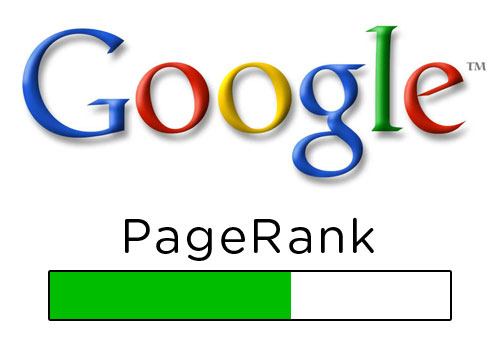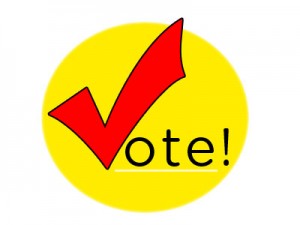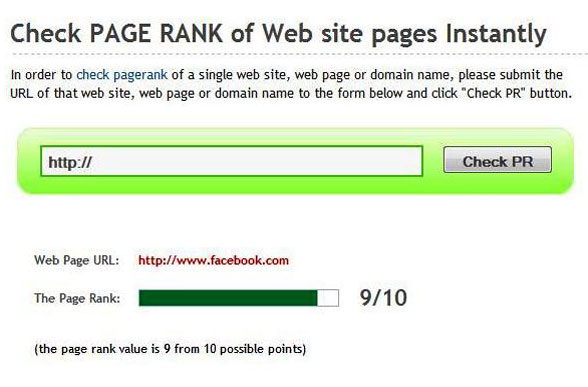
Today I wanted to take a moment and go over what Google’s Page Rank system really is and clear up any questions or confusion that some people who aren’t familiar with Google’s ranking system might have. Fitting enough, today marks Google’s latest PageRank update (08-02-2012). In short, page rank is Google’s link analysis algorithm that measures importance by the amount of relevant and third parties linking to your website. Let’s however did a little deeper and get some more information on PageRank.
Again, PageRank is an algorithm used by the most popular search engine company: Google. You may hear the term tossed around a lot by internet marketers, search engine optimization companies, blog owners, businesses and website owners who are trying to increase their websites authority and search engine results page (SERP) ranking. PageRank is actually named after Larry Page who is an internet entrepreneur and co-founder of Google. It’s the basis of the search engines proprietary algorithm which ranks and displays search results. There is however much debate in today’s ranking factors and on the relevance and impact that PageRank has for ranking as many have found loopholes to manipulating it. Currently there are hundreds of factors which all combine to create authority and relevance for websites, and not just PageRank alone.
PageRank is about Trust, Popularity, Authority & Importance
 PageRank in its purest form represents the importance of a certain page whether it’s the homepage or an inner page, all pages can gain PageRank. When another website links to your website with a contextual link, it acts as a ‘vote’ if you will to that page. The more relevant and other high authority and high PageRank sites that link to you, the higher your PageRank will be for that page. Incoming links are beneficial for this purpose as PageRank is a factor of trust in Google’s algorithm. If a website or page has no inbound links coming from people sharing your content or linking to it, there will be no votes and therefore no possibility of having and increased PageRank or PR above 0.
PageRank in its purest form represents the importance of a certain page whether it’s the homepage or an inner page, all pages can gain PageRank. When another website links to your website with a contextual link, it acts as a ‘vote’ if you will to that page. The more relevant and other high authority and high PageRank sites that link to you, the higher your PageRank will be for that page. Incoming links are beneficial for this purpose as PageRank is a factor of trust in Google’s algorithm. If a website or page has no inbound links coming from people sharing your content or linking to it, there will be no votes and therefore no possibility of having and increased PageRank or PR above 0.
PageRank works on a scale of PR: N/A to 10. The higher the PageRank, the more trustworthy that page or website is deemed to be. If you have a slew of incoming links from PR 1 websites, then in all likelihood, your website will receive a PR of 1. PageRank is often confused with where your website appears in the search engines, however this as I mentioned above is actually called the SERP, or search engine results page. Try not to confuse the two, as PageRank is simply an algorithm granting an authority and importance score, while SERP is where website appears when a search query is entered into Google.
Returning to Google’s identification of importance by numerical values, a website or page that was identified with a PageRank of 10 would be an extremely popular and highly linked to website, while those that have a PageRank of 0 are often new websites or pages, or just not very visited, shared or popular. Will the PageRank of your website hurt your reputation or hold you back? No not entirely, but it is one of hundreds of ranking factors that can and do certainly help.
How to Check Google PageRank

I’m sure you’re just itching to know what your PageRank is, and there are a few ways to tell. I would either suggest installing a toolbar addon in FireFox or Google Chrome, or you can simply visit prchecker.info and enter your URL as I’ve shown in the picture above. This website also offers a badge that you can place on your actual website which will track it as time goes on, however this isn’t ideal for most websites. Your PageRank may fluctuate over time; which brings me to my next point. The Google PageRank is updated periodically on a schedule that is never fully released to the public. If you’re wondering when the next Google PageRank is, well today marked an update and typically it can occur every three months or so; however it has lasted as long as eight months at times before another update has occurred.
Please take away from this information that as more websites link to your page(s) and end users share your content on social networks, their blogs and other mediums, your page rank is likely to increase based on their relevance and the PageRank of who is linking to you. Create compelling content and it will be more likely get shared and linked to, but that’s a completely different post in itself, so stay tuned for that and many more topics that we’ll cover in future posts.

Share